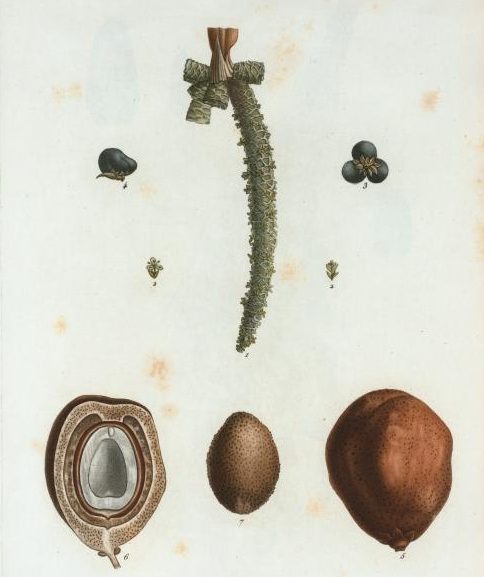
"Ramadan Diaries" began in 2019, and I repeated the series in 2021. Without intending to, I skipped a year in between each cycle, including March 2020, where I spent Ramadan trapped in an ad hoc Airbnb rental in Salvador, Brazil, when all commercial flights to the U.S. were suddenly grounded. It is now 2023 and the entries that ensue comprise its final cycle.
Over a third of the month has already passed. As is typical, in what I will now affectionately call Monalisa's Rule of Thirds, it usually takes me a third of the way into a revolution (the third month of the year, for example) to adjust myself to the new temperature.
This year Ramadan roared thunderously into the little forest cottage of my life. It tore through the bushes, wrestled the floor rugs, muffed the curtain rods, broke some fine china, and then sat eating an apple comfortably by iftār time. I thought I was prepared! I set intentions. I bought medjool dates and cleaned my house. I signed up for volunteer shifts to help serve iftār. I planned. But so far it has delightfully subverted some unsaid expectations, offering novel lessons about patience and limits, rest and focus.
∞
Like I do every year I cold-turkeyed my way into no coffee, and for the first day or two, the caffeine withdrawal hurt every cell and rampart.
I felt the pull of a huge shift, a vortex swallowing a former shriveled identity and leaving me with the terror of choice, a new path.
∞
At NYU, whose Islamic Center has become a regular stop since in-person events resumed, someone tried to set me up one night. I was flashed a phone with an Instagram handle, whose profile image I only remember as colorful grains.
Afterward I took my new poetry translation manuscript to The Standard in East Village, and worked on it until midnight. At the restaurant I ordered some nuts and a diet soda, whose 46 milligrams of caffeine would keep up my newly detoxified body well past 3:00 a.m.
The next day I did yoga; the first sequences punched with a head rush complete with a Tweety Bird animated dizzy stars sequence orbiting my skull. Eventually my body adjusted and I finished the session feeling better. Random aches throughout my body. I don’t take any analgesics but wished I could pop a strong anti-inflammatory. I haven’t taken pain medications in almost two years, so what’s another day.
I went to see PRISM Quartet at Corpus Christi Catholic Church at the invitation of saxophonist Matthew Levy, who was once involved in arranging a piece of mine to music. In the sturdy pews my body fell into a state of such severe pain that I doubled over. I didn't know where it came from, beyond the piercing induction of caffeine withdrawal—but tell a friend that it's probably a misalignment in the heavy movement routines I did last week.
I went to a salon in Brooklyn later that evening. The Russian woman at the front desk who swiped my credit card took delight in seeing me break my fast. She's breaking too, and we clink medjool dates midair like tiny fistbumps. She offered me a piece of chocolate, which I decline, but she has pain meds. "It's Russian ibuprofen." She popped out a round pill from an aluminum blister foil. For about three-fourths of a second the texture of the packaging transported me away—an "anywhere else but Amreeka" moment.
Every night I am eating on the go, usually sneaking a little meal directly after movement classes, as everyone shuffles out sweaty and amused, their eyes patting me on the back. One night when I do get the chance to prepare a real meal at home it’s consumed with the camera off at a virtual business development meeting. I feel estranged from the act of cooking, which provided such gusto just a few weeks ago.
∞
I am taking a ten-month course on the pāramīs, the "transcendent virtues" in Buddhist ethics. Each month corresponds to one of the pāramīs, and we conduct two meetings: one where the entire group meets with our teacher for an extended time, and a smaller hour-long home group session. I feel really lucky about my assigned group, an incredibly smart and sensitive bunch of people who have navigated huge life experiences and cultivated the skills to make wise meaning out of them. If everyone I was in contact with daily were like even one of these people, I'd be living in heaven on earth.
Śīla is this month's pāramī, and it is usually translated as "skillful or ethical conduct." We discuss recent encounters that have challenged us, whether it involves weighing potential harm done to others or others' harm unto us. The topic of reactivity comes up, especially when someone reacts harshly and negatively to one's legitimate grievance about their actions, without taking accountability, and that leads into a comment about shame. One participant says that shame is an emotion that quells other emotions. In other words, you can recite the world's greatest arguments for or against a certain behavior, but if your interlocutor is mired in their own shame, they likely won't hear you. "I would tell that person, 'I'm sorry you're still stuck in that place, I wish that changes for you,'" she says. There are other skillful choices to make when we get unglued from the empty rage behind our shame.
∞
I found notes to last year's Ramadan and couldn't help but linger on them. So many entries involve my soul mate and love of my life: my cat Suma, who died later that year. In nearly every entry she follows me around room to room.

My brother and I (or was it a conversation overheard after maghreb prayer? I can't remember) discuss what three-hour part of the day is hardest. We agree (or the unnamed people I overheard agree) that it's 2:30 p.m. to 5:30 p.m. "Undoubtedly. Like, without a doubt bro," someone says.
I suddenly remember the etymology of forgetfulness, which shares a root with lethargy (from lēthē). I feel so acutely the animalistic reality of this body, a human fragility I've been socialized to ignore and conditioned to outrun. Maybe this month was set aside to intuit this fragility, to grapple with its truth, and then vibe with it.
Somewhere in last year's notebook I jotted down without context: "to forget the human soul as sleepwalking through life..."